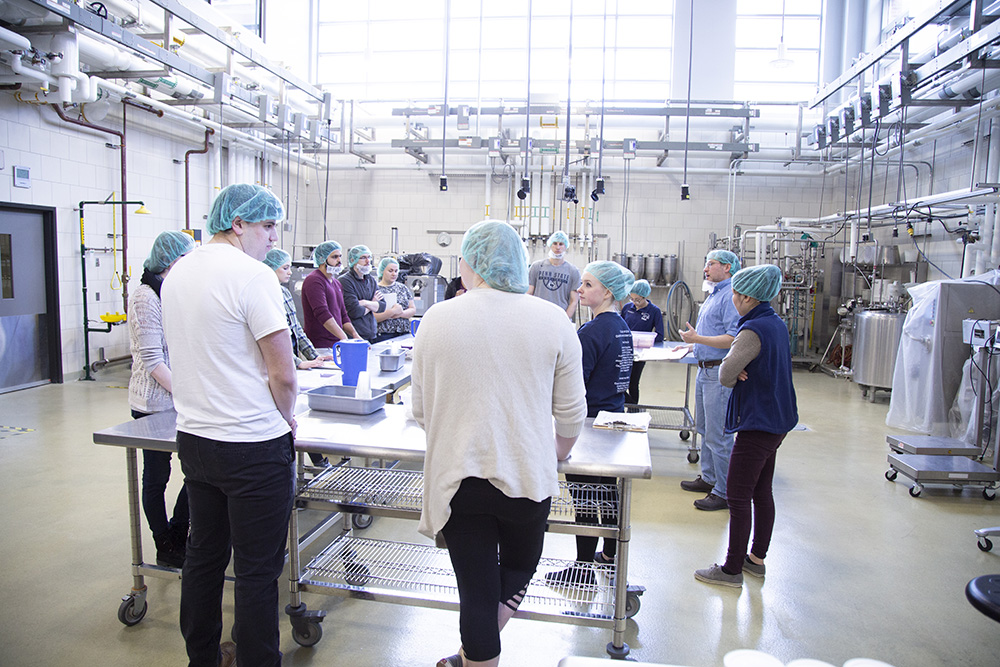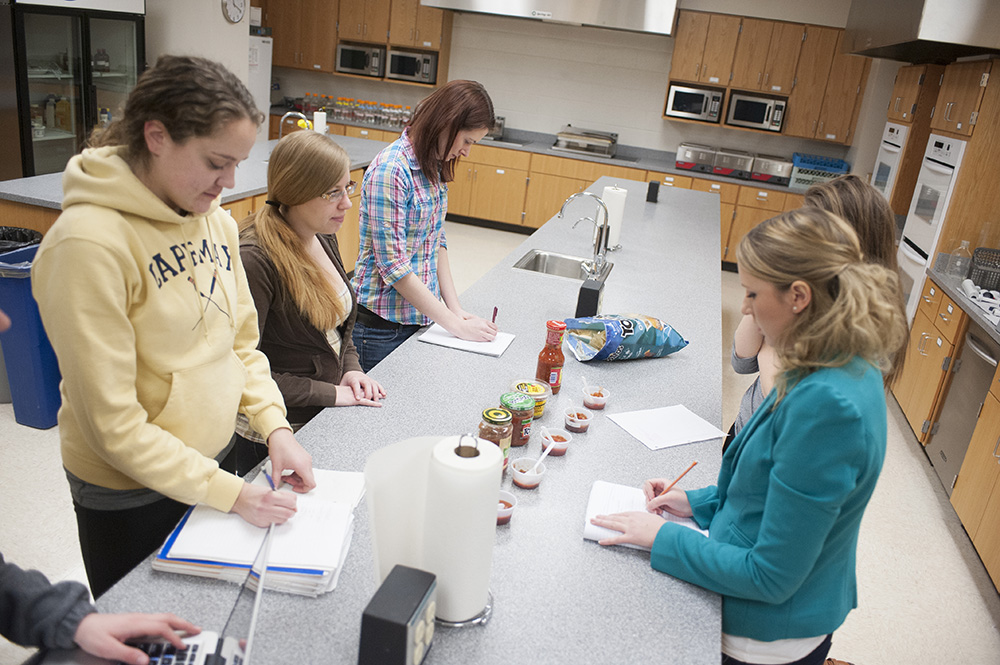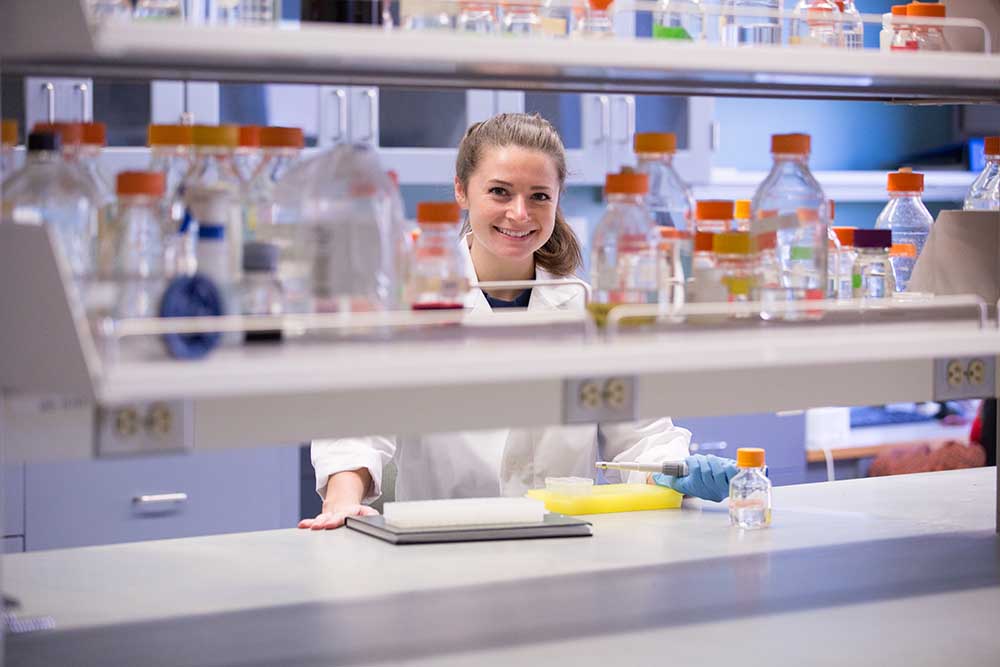Food Science Major
Love of science, love of food.
The science and practice of manufacturing food and beverages that are nutritious, delicious, and safe to eat. Students learn in a hands-on, small classroom setting and can step immediately into rewarding careers in industry and government or continue on to graduate and professional schools.
Small-school feel. Big-university opportunities.
Penn State Food Science is a tight-knit community united by the common passions of food and science. You belong here. You'll get the personalized attention you need to thrive academically and excel in your career.
Our faculty conduct critical research across the spectrum of food science. We’re pursuing the safety and security of our food supply, finding innovative ways to use food waste, exploring the ancient history and cutting-edge technology of wine making, and deepening our understanding of what influences consumer choices. But cultivating your talent and producing the next generation of world-class food scientists is priority number one.
Employers want to hire Penn State Food Science grads.
The biggest and best companies routinely tell us that our graduates are prepared to step into leadership roles from day one. Regardless of economic ups and downs, people have to eat. The food industry is consistently recession proof, and food scientists are always in high demand.
Food Science is the right major if you’re:
- a solid science student looking for real-world application
- seeking an academic path with an extremely encouraging career potential
- in search of practical, marketable credentials
- interested in developing new food products, supervising manufacturing operations, or ensuring food quality and safety
- aspiring to work for government agencies enforcing the regulations that keep our food supply safe
See the University Bulletin for details on program requirements, suggested academic plan, and more.
Ag Journeys
“I’ll be starting my career as a food scientist right after graduation.”
–Lauren Wolf
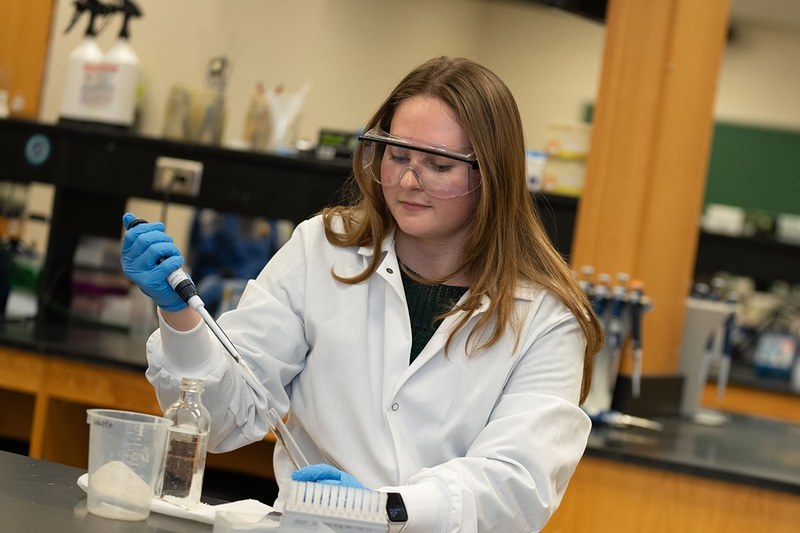
The classroom is only the beginning.
You’ll study with professors who are leaders in their specialties, but they’ll be the first to tell you that the classroom and lab are just the beginning of your Food Science experience. You bring the interest, and we’ll help find you a faculty-guided club, internship, externship, or hands-on research opportunity. The learning doesn’t stop on campus, or in Pennsylvania for that matter. Wine making in Napa Valley? Cheese production in France? We visit—and we learn.
Craft your experience.
Related clubs and teams
- Food Science Club
- Food product development competitions
- Student research poster competitions
- Beekeepers Club
- Dairy Science Club
- Dairy judging teams
- Fermentation Club
- Student Farm Club
- See all clubs and teams
Recent internships
- Food inspector
- Microbiologist
- Product development
- Research and development, quality, and innovation
Popular study abroad experiences
- Greek Culture and Food
- Brewing and Malting in Europe
- Comparing French and U.S. Food Systems in France
- Exploring Food Production in Italy
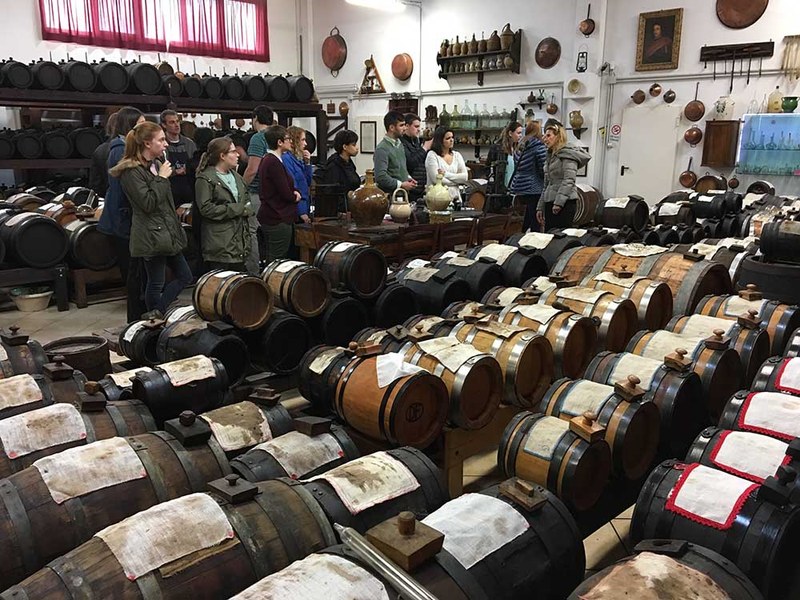
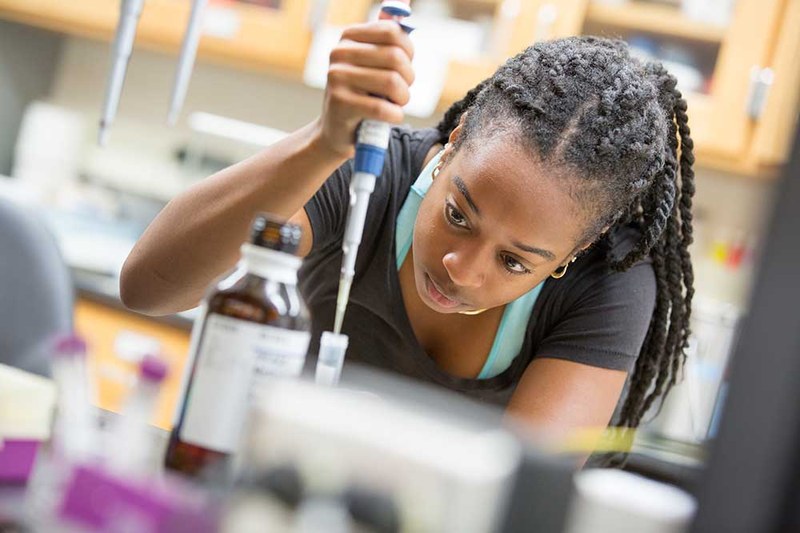

A practical, workforce-ready degree—and a college experience you’ll love.
Penn State Food Science alumni walk off the stage at graduation and step into stellar careers all over the world. You can harness the awesome power of a truly unique education at one of the world’s most prestigious universities.
Our alumni out in the world
- Product development
- Federal and state regulatory agencies
- Graduate school
- Sensory evaluation labs
- Food processing operations
- Quality assurance and inspection
- Food safety
- Manufacturing
- Procurement
- Trade associations
- Universities and extension
- Technical sales and service
Food Sciences Career Examples
Here is a glimpse into the variety of careers and other pathways you might pursue with a degree in Food Sciences. Our students have access to several career resources to help them prepare for an amazing career!
Food Scientist
Food scientists apply chemistry, biology, and math to ensure food's safety, quality, nutrition, and sensory appeal. They often work in production facilities, laboratories, and pilot plants, as well as in management. Most work in the food industry but some pursue careers in research institutions, associations, or state or federal agencies.
Research and Development Food Scientist
A research and development (R&D) scientist improves food products and food ingredients by applying scientific principles and techniques. They conduct experiments to develop new processes, enhance existing products, and solve formulation challenges, while ensuring compliance with safety and regulatory standards.
Quality Assurance Manager
Quality assurance managers analyze the components of food products and the finished product. Their goal is to ensure that food meets company and government quality standards. This role involves developing quality assurance protocols, conducting audits, and working with production teams to maintain product consistency and safety.
Sensory Scientist
A sensory scientist evaluates how food products engage the senses—taste, smell, texture, and appearance. They aim to ensure that food meets consumer preferences and quality standards. They design and conduct sensory tests and panels to gather and analyze data on product attributes and consumer perceptions. Their insights guide product development, refinement, and marketing strategies to enhance overall consumer satisfaction.
Product Developer
These professionals help develop new food products or improve the quality, performance, and/or safety of existing food products. Their work requires a creative flair, sensory evaluation expertise, and the ability to work in teams. Many work for established companies, but others work for start-ups or start their own businesses. They may formulate new culinary concepts, use sensory evaluations to assess products, or work with others to solve complex problems and spark innovations. Additionally, they collaborate with cross-functional teams to bring innovations from the lab to market, aiming to meet consumer needs and industry trends.
Government Agency Roles
Some food science graduates are involved at the state or federal government level. They work in agencies such as the U.S. Department of Agriculture, Food and Drug Administration, Environmental Protection Agency, and Pennsylvania Department of Agriculture. These roles include developing policy, enforcing food sanitation and labeling regulations, and ensuring the safety of our food supply through inspections and audits.
Food Production Manager
A production manager oversees the entire production process. Their role is to ensure that food products are manufactured efficiently and safely and are in compliance with quality standards. They coordinate scheduling, manage staff, and optimize workflows to meet production targets while minimizing downtime and waste. Additionally, they handle troubleshooting and problem-solving to address any issues that arise during production.
Extension Educators
Extension educators specializing in food safety, food processing, or human nutrition instruct and inform audiences through various modes. These include face-to-face meetings, workshops, classes, educational publications, and digital media. They may directly or collaboratively develop programming, courses, presentation materials, instructional literature, educational videos, and more.
Food Safety Manager
The food safety manager ensures that all food products comply with safety regulations and standards. This role involves implementing food safety programs, conducting risk assessments, and overseeing compliance with local, national, and international food safety laws. This role is vital in preventing foodborne illnesses, avoiding recalls, and protecting both consumers and the company from safety-related risks.
International Roles
Many large food companies are multinational and employ graduates with international experience or who speak languages other than English. Graduates looking to expand their horizons can help citizens of low- and middle-income countries improve their food handling and storage procedures. They work with agencies such as the Food and Agriculture Organization, World Health Organization, or Peace Corps.
Advanced Studies and Alternate Industries
Many graduates harness the foundation afforded by their food science education to pursue pathways beyond the food industry. They may continue their study in dental, medical, or law school or take on leadership roles in other professional fields.
Food Science Students in the News
October 9, 2024
Two earn Outstanding Guided Study Group Leader Award
Penn State Learning named Marielle Manes and Austin Bentzinger as the recipients of the Outstanding Guided Study Group Leader Award for the spring 2024 semester.
Read More
October 1, 2024
In photos: Internships prepare students for career success
Baking in the test kitchens at The Hershey Company. Studying the effects of space weather on satellite communication with NASA. Working on Capitol Hill in Washington, D.C., as a congressional intern. Planning events at the Arboretum. These activities are just a few of the many experiential learning and professional development opportunities that Penn State students gained through internships this summer.
Read More
June 13, 2024
Penn State Dairy Products Evaluation Team places high in a national contest
The Penn State Dairy Products Evaluation Team recently competed in the Collegiate Dairy Products Evaluation Contest in Milwaukee, placing high in several categories.
Read More
November 3, 2023
Food Science Club spotlight: A community-based program
The Food Science Club is a student-based group in the College of Agricultural Sciences that offers opportunities for students to advance their academic and professional careers.
Read More

